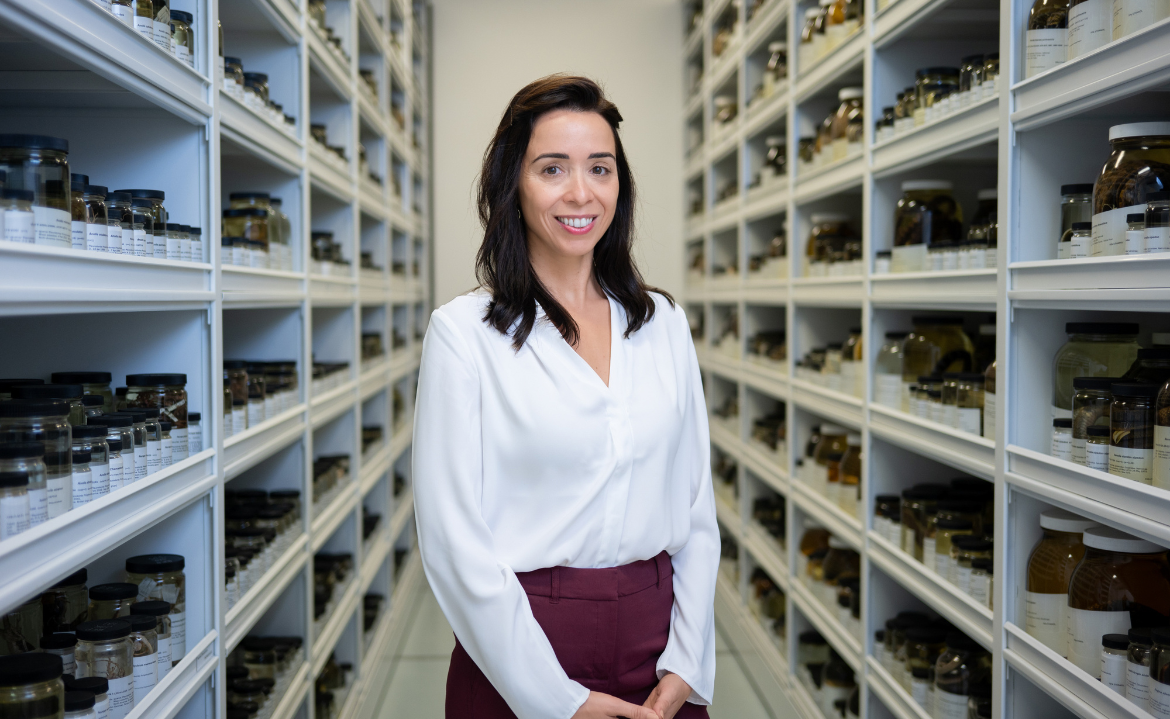NEW HAVEN—Growing up in Queens, NYC, Dr. Martha Muñoz daydreamed about distant islands with great biodiversity. Her parents would share stories about living in Cuba—sparking an interest and curiosity for exploring lush environments. Public parks and museums nurtured her passion for the natural world at a young age.
“Any green space, any museum, any zoo, these were places where my imagination and my fascination and wonderment with the natural world could run wild, could run free,” explained Dr. Muñoz.
A 2024 MacArthur Fellow, Dr. Muñoz is known and celebrated for her groundbreaking research within evolutionary biology. She is also an Assistant Professor at Yale University’s Department of Ecology and Evolutionary Biology and an Assistant Curator at the Yale Peabody Museum, in its Division of Vertebrate Zoology.
In a conversation with CTLN Reporter and Editor Belen Dumont, Dr. Muñoz shared about her work that explores the role of behavior in organisms’ evolutionary diversification, how her personal background has influenced her career, along with the importance of self-doubt in science and combating imposter syndrome in professional contexts.
As a first-generation Cuban American, Dr. Muñoz emphasized the importance of exposing underserved communities to the natural world and sciences.
“As I was growing up, I had no idea that I would become an evolutionary biologist, a professor, a curator, a scientist—primarily because I didn’t know that these were jobs. I didn’t know this was a career I could access,” said Dr. Muñoz.
“Maybe it’s not surprising that I’ve ended up back at a museum, so to speak, because I understand the transformative power that museums can provide by connecting people with the natural world and creating a place where their wonderment can be stimulated.”
Primarily a field biologist, Dr. Muñoz works largely in the tropics to carefully observe organisms—specifically reptiles, amphibians, and fishes—in their natural habitats, which is critical to her research and developing hypotheses.
“The nature of my research is to understand how evolution happens,” shared Dr. Muñoz. “In particular, I’m fascinated by how it’s not a uniform process: Sometimes evolution can be really quick…in other cases, evolution seems to plod along… I’ve discovered that organisms themselves play an incredibly prominent role in dictating the rate at which evolution unfolds.”
Dr. Muñoz explained how her study and initial observations of tropical anole lizards, specifically, have led her to make innovative connections between an organism’s habitat structure, behavior, and physiological adaptations.
“Through their behavior organisms can, on the one hand, expose themselves to natural selection by using new resources or entering new environments, which in turn should prompt or accelerate evolution,” explained Dr. Muñoz. “Conversely, organisms can use behavior to shield themselves from selection—hiding from environmental extremes, shielding themselves from certain types of predators—and in so doing, limit the natural selection they experience and slow evolution down.”
